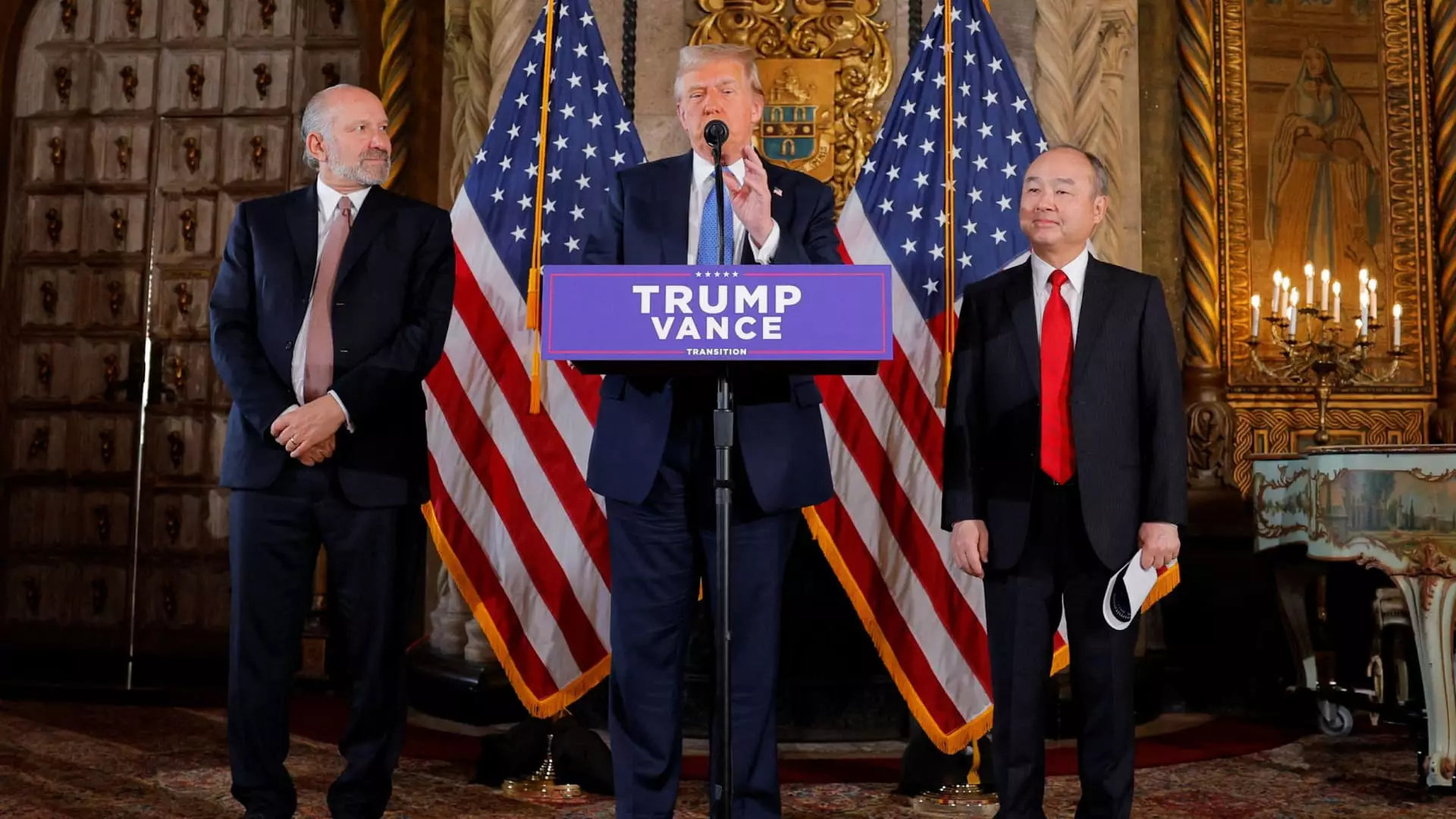In a significant move that highlights the intertwined nature of global economics and technological innovation, SoftBank’s CEO Masayoshi Son has pledged a remarkable $100 billion investment in the United States over the next four years. The announcement was made during a meeting with President-elect Donald Trump at Trump’s Mar-a-Lago estate, reflecting a growing confidence among tech investors in the U.S. economy. This ambitious plan aims not only to support growth in artificial intelligence and related sectors but also to create a minimum of 100,000 jobs, demonstrating a robust commitment to fostering a high-tech labor market.
Son expressed his renewed confidence in the U.S. economy post-Trump’s electoral victory, signaling a shift in investment strategy that could have lasting impacts for startups and established tech giants alike. “My confidence level in the economy of the United States has tremendously increased with his victory,” he remarked, indicating that such faith in the new administration’s policies may translate into tangible economic benefits. This sentiment echoes past investment commitments made by SoftBank—a similar $50 billion investment was announced after Trump’s initial election in 2016, with expectations of creating 50,000 new jobs.
The creation of jobs remains a core pillar in SoftBank’s investment strategy, with Son emphasizing the link between technological advancement and employment opportunities. The focus on artificial intelligence and its infrastructural development aligns with current industry trends aimed at shaping the future of technology. Trump underscored the significance of this investment, framing it as a demonstration of confidence in America’s economic trajectory. The implications of this sizable cash influx suggest a concerted push towards making the U.S. a leader in innovation, ensuring that critical sectors are nurtured and expanded domestically.
How this funding will be allocated remains a point of interest, as it could potentially derive from various entities within SoftBank’s portfolio. Notably, sources could include the Vision Fund, direct investments in capital projects, or even interests in companies like Arm Holdings, where SoftBank holds a majority stake. Furthermore, it’s important to note that not all the invested capital will be new; some funds may stem from previous commitments, like the $1.5 billion recently invested in OpenAI—an intention to deepen ties with transformative technologies already making waves in the industry.
Masayoshi Son’s substantial investment pledge reflects not just an optimistic outlook on the U.S. economy, but also a strategic alignment towards driving forward the technology sector, particularly in areas like artificial intelligence. As political landscapes shift and global competitiveness increases, investments like SoftBank’s signal a potential acceleration in America’s tech-led growth, promising exciting developments for both job creation and technological advancement in the years to come. The combined forces of capital investments and policy-oriented leadership may well forge a new era of innovation, enhancing the U.S.’s position as a cradle for the next generation of technological breakthroughs.

